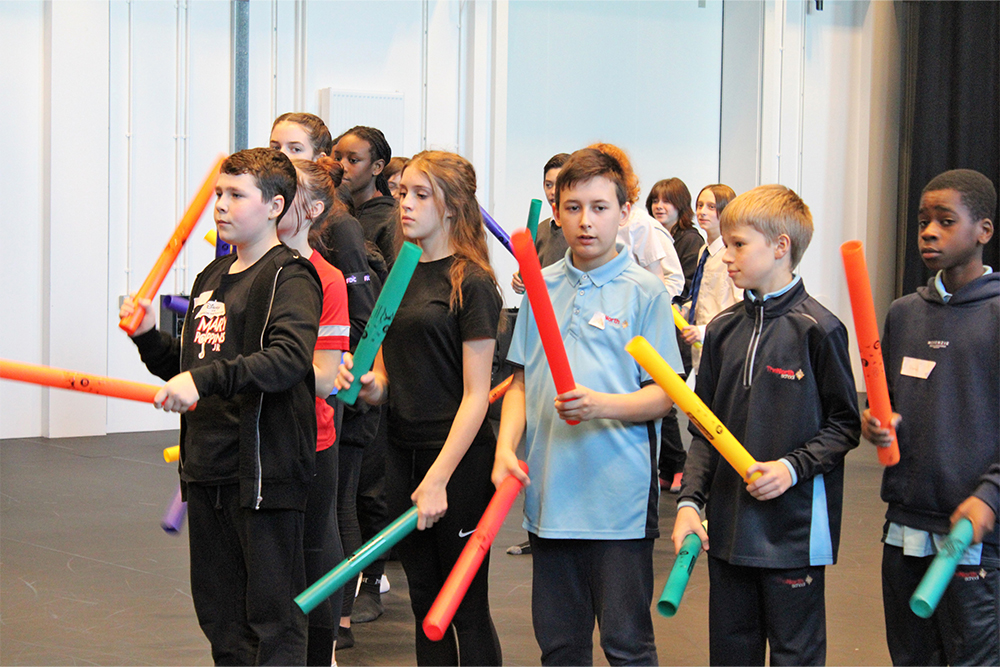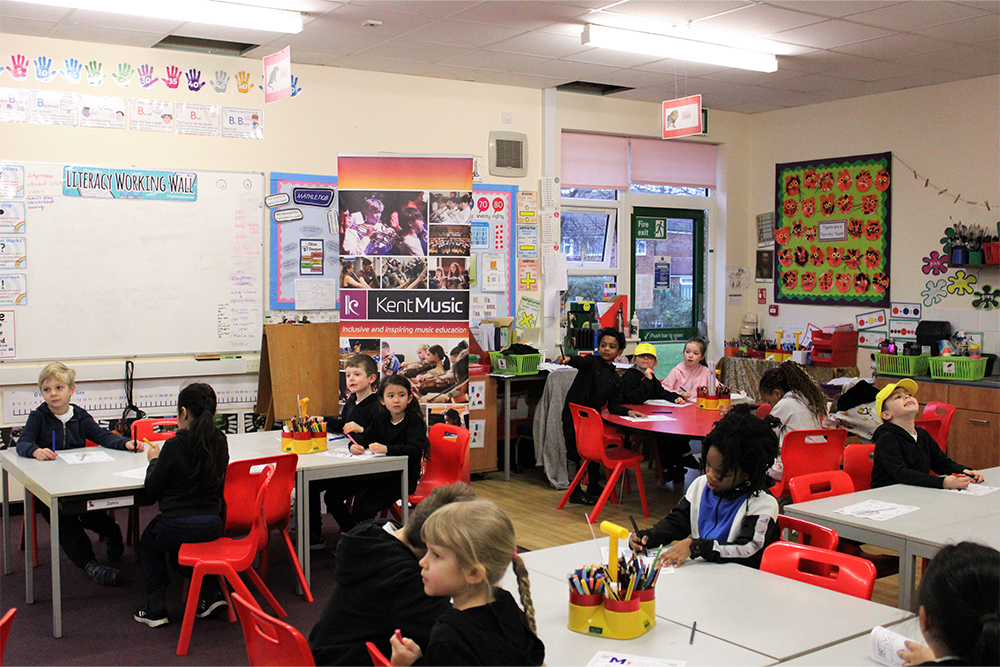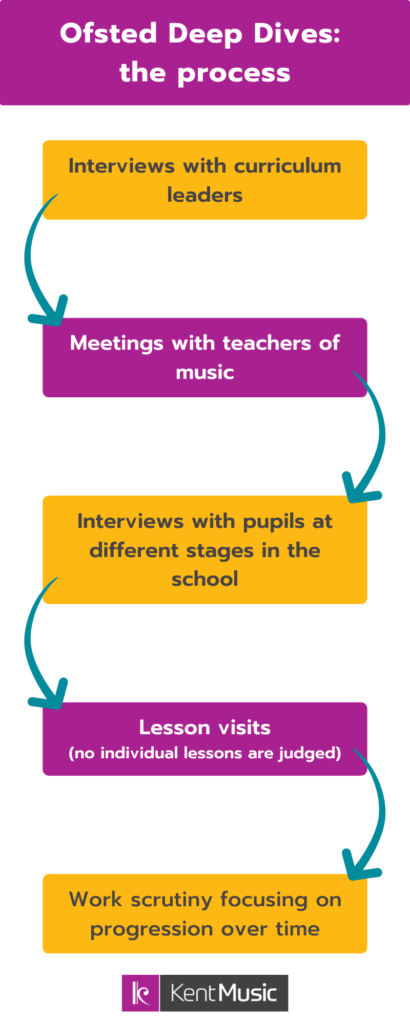
Education Inspection Framework – The Deep Dive Process
In 2019 Ofsted launched their new Education Inspection Framework which introduced the new inspection approach of the ‘deep dive’. Any subject can be selected for deep dive, the intention is to be able to assess the quality of education in the school through a more rigorous approach in fewer subjects. As well as assessing a school’s quality of education, Ofsted also look at other key areas during the inspection including behaviour and attitudes of pupils, personal development and of course leadership and management in order to decide the overall rating of a school.

What is the purpose of a Deep Dive?
Ofsted are using the new Deep Dive process to allow them a more in-depth look at certain curriculum areas within a school in order to make an informed decision on a school’s quality of education.
The process of a deep dive will allow inspectors to learn about the curriculum that is on offer at the school, and whether the delivery of their curriculum is doing what the school have set out in their intention.
The Three 'i's
- Intent – what the school intends children to learn and what skills you would like them to gain in their time at the school
- Implementation – how does your curriculum ensure you deliver your intent? Which resources or methodologies do you draw on to deliver your curriculum
- Impact – are the pupils gaining the intended knowledge and skills when you plan them to?

Deep Dive Interviews
There are a huge number of possible questions that could be asked through the deep dive interview process. We have narrowed down to some of the key areas below:
- What is your vision/intent for music in your school?
- How is the music curriculum you teach relevant to the children in your school?
- How do you ensure there is a sequence of learning?
- How do you assess and evidence pupil progression across the years/key stages?
- How do you ensure your staff have good subject knowledge?
- How is music used beyond the classroom?
Deep Dive in the classroom
Inspectors will visit lessons, talk to teachers and pupils and look at pupil work to gain further insight into music in the school. The lesson observations and evidence scrutiny should support what was discussed in the interview.
How you monitor pupil progress should demonstrate how the musical skills are progressing. For practical subjects such as music inspectors expected to see or hear the pupil progress through videos and audio clips as well as any written evidence you might have.
When planning your curriculum, it is worth considering how best to capture pupil progress and making sure that assessment points are mapped in. For example, if you intend on teaching pupils to sing with accuracy or rhythm and pitch in a scheme record your pupils at the beginning and at the end of the scheme to demonstrate the progress made over time.
Music and school life
Ofsted will be interested to hear about music’s place in school life generally. Questions you could be asking yourself include:
- What opportunities do your pupils have to engage with tuition in the school?
- Do you have a singing strategy in the school?
- Do you run any ensembles?
- How do you work with your hub to drive improvement?
- What performance opportunities are there for your pupils?
- Are you a Music Mark member?
These questions could inform your longer-term plans for music, think about where you would like to be in 3 years’ time and plan for that!
Helpful Links
In September 2023 Ofsted released their music subject report Striking the right note. This document is a useful tool to understand the common challenges they have found when visiting schools as well as some of the excellent work that is happening.
A common discussion topic for schools is ‘how can we ensure we are evidencing what we do?’ Or ‘how can we assess music musically?’ Why not watch Christopher Stevens (HMI National Lead for Music) talk more about assessment in music here.
Kent Music Helpful Hints!
- Make sure you have an intent (or vision) for music and that all your teachers are aware of it!
- Make sure the curriculum you map meets the needs of your pupils at the different stages of learning. (Take time to ask your teachers if they think the curriculum is too fast or slow and adapt it as it happens!)
- Make sure your staff are confident and upskilled to deliver quality music lessons!
- Decide how you will monitor progress to demonstrate musical skills and knowledge being learnt.
- Get in touch with Kent Music if you are stuck – we offer specialist consultancy to schools which can include consultancy on building a music curriculum, whole staff training and more